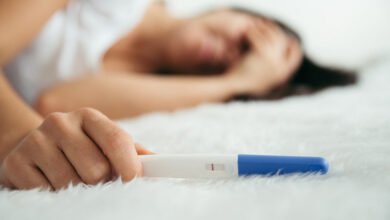Parechovirus Information For Parents

Should parents get worried about parechovirus? There have been other public health events raising concern, including novel COVID-19 mutations, hepatitis, and monkeypox. Health professionals are now concerned about a different infection. Parechovirus incidences among newborns and young infants in numerous states have recently prompted the Centers for Disease Control and Prevention (CDC) to issue a public health alert.
Read More: Covid-19: 12 Things to Keep in Mind If You are Working Remotely
Even though parechovirus is frequently found in young children, anyone can get it. By the time they enter kindergarten, the majority of young children have it, and they normally exhibit minimal or no symptoms. Parechovirus can, however, result in severe illness, high fevers, and even death in very young children.
Dr. Jershonda Hartsfield, a board-certified pediatrician with an institute, states that newborns and infants under the age of six months, particularly those under three months old, are more at risk of developing more serious illnesses.
Thankfully, the virus seldom causes serious disease or death. Most kids with minor infections typically exhibit cold or flu-like symptoms, along with a temperature and rash, before quickly getting well. Because their immune systems are still developing, symptoms in babies younger than three months old may be more harmful.
According to Dr. Hartsfield, infants may exhibit high fever, sepsis, meningitis, or seizure symptoms. “You should get medical attention right away if your infant has a fever, rash, reduced appetite, and isn’t reacting normally or is very lethargic.”
Parechovirus Is Nothing To Worry About As A Parent
Like many other viruses, the parechovirus spreads from person to person by saliva and feces as well as respiratory droplets following a cough or sneeze. Parechovirus, which causes respiratory infections and gastrointestinal infections, can spread for up to six months, according to the CDC.
Parechovirus is an old seasonal infection, with cases often peaking in the summer and fall each year. According to medical professionals, it’s probable that the COVID-19 pandemic and related preventative efforts temporarily prevented exposure to the virus. This year, there have been more cases than usual. This could be because people are mingling more or because more testing is being done.
Read More: Which Sleeping Position Is The Safest For A Baby?
Prevention And Treatment Of The Parechovirus
In severe circumstances, a parechovirus diagnosis might assist guide treatment. Rest, plenty of fluids and symptom monitoring are advised for minor illnesses. Consult your child’s pediatrician if there are any concerning signs.
Since there are no vaccinations or antiviral medications, prevention is essential. Dr. Hartsfield advises that you should wash your hands thoroughly after diapering, using the restroom and before you eat or feed a child.
Additionally, she advises avoiding older children and adults who are showing signs of illness. “Ask any expected visitors to stay at home and reschedule if they are feeling under the weather. To the greatest extent feasible, try to keep ill family members away from your infant.
Parents of small newborns shouldn’t become alarmed about the parechovirus. But knowing that this virus is present and how to avoid it is a good idea.







